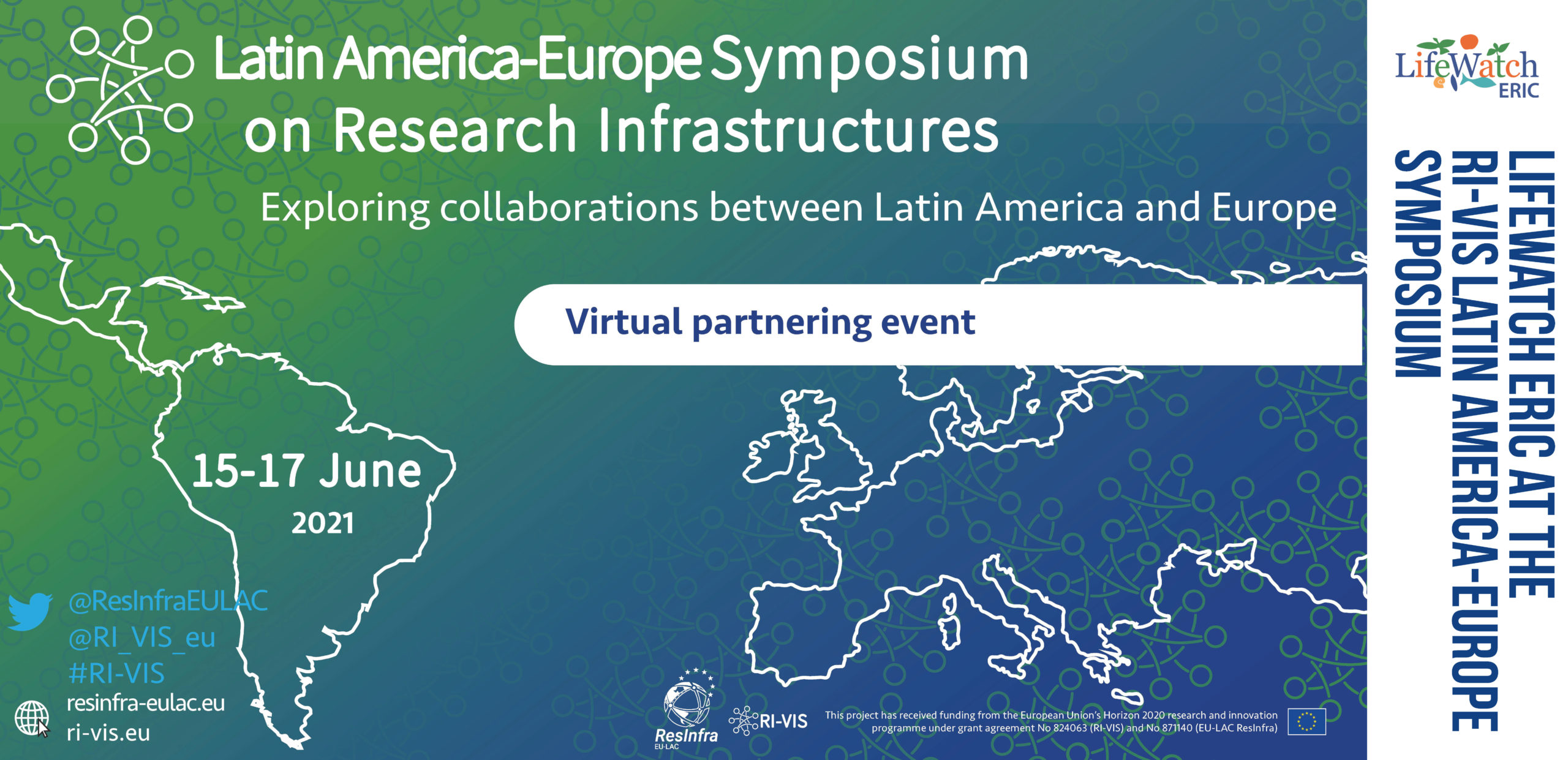LifeWatch ERIC was delighted to take part in the RI-VIS Latin America-Europe Symposium on Research Infrastructures, held online 15-17 June 2021. The European Union and Latin America enjoy privileged relations and are natural partners, linked by strong historical, cultural and economic ties. The EU-LAC ResInfra project (Towards a new EU-LAC partnership in Research Infrastructures, funded under Horizon 2020), of which LifeWatch ERIC is a partner, has for ten years been building biregional collaboration on climate change, digital innovation, research and education. Cooperation between the 27 EU and 33 LAC (Latin American and Caribbean) countries, which together comprise over one billion people, is an important part of addressing major global issues like infectious disease, food security, and natural disasters.
The RI-VIS Latin America-Europe Symposium on Research Infrastructures brought together nearly 200 speakers to consolidate collaboration on enabling scientists to use specific facilities, resources, and expertise to accelerate scientific achievements, overcome boundaries, train highly skilled specialists, and promote sustainable research. The goal was to deliver a sustainability plan and roadmap which included human capital development and capacity building within its science, technology and innovation framework.
LifeWatch ERIC Chief Technology Officer and ICT-Core Director, Dr Juan Miguel González-Aranda, delivered an enthusiastic presentation on the “LifEuLAC Pilot Case Study” on Tuesday 15 June, as part of the session Case studies of multinational and biregional Latin American-European partnerships. He outlined LifeWatch ERIC’s role in economic evaluations of ecosystems, describing how through strategic, tactical and operational plans it will continue to expand environmental studies that contribute to economic growth and equity.
The development of innovative ICT tools – Blockchain, which illustrates the socioeconomic value of ecosystem services, and Tesseract, which is designed to support policymaker decision-making – places LifeWatch ERIC in a strong position to measure the impact of global climate change on biodiversity and ecosystem research. Ongoing collaboration with other Research Infrastructures will produce greater data evidence and understanding that will greatly benefit both regions of the partnership.
For more information, click here to read the White Paper published ahead of the Symposium, entitled “Recommendations towards cooperation between Latin American and European research infrastructures”.
